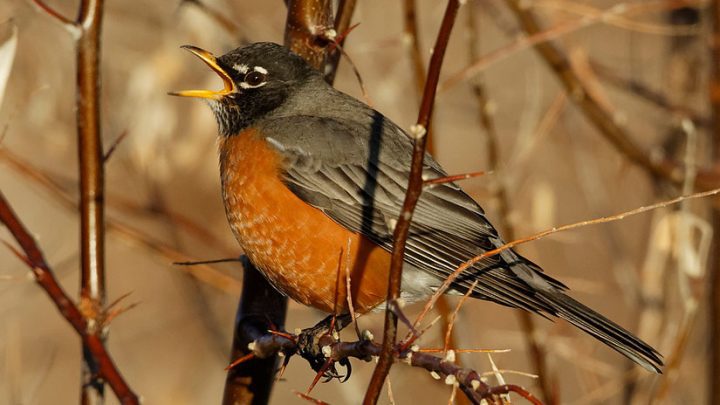I’ve been hearing beautiful bird songs every morning since spring, but suddenly I’m not hearing birds at all! What happened to them?


Birds sing for two basic reasons associated with nesting: to attract a mate and to defend a territory. By July, many baby birds have fledged, and adult birds are busy feeding them and teaching them how to find their own food and other survival skills. At this point, species that raise only one family a year may stop singing altogether, but some have a brief resumption of song, which may help teach the young of those species their local song dialect. But overall, one by one, each species drops out of the spring chorus until by late July, only a handful of birds are still singing at all. One of our most noticeable backyard songsters, the American Robin, may renest several times from its arrival in early spring through summer, but even robins don’t start new nests after late July or at the latest early August. At this point, they stop feeling territorial and join sociable feeding flocks, and territorial singing is just not compatible with flocking.
Those of us who treasure the spring dawn chorus usually feel a sense of loss at the sudden silence. Robert Frost’s poem, “The Oven Bird,” is about this forlornness. Frost notices that the Ovenbird sings later in summer than most birds, and concludes his poem, “The question that he frames in all but words/ Is what to make of a diminished thing.”
Ironically, this silence and secretive behavior as birds raise their fledglings and then molt makes them least conspicuous right at the time of year when birds are most abundant, when populations of adults are augmented by all the young birds they produced this year. By spring, bird numbers are greatly reduced after losses during two migrations and over winter, but that’s when they’re most conspicuous thanks to that rich singing.


All About Birds is a free resource
Available for everyone,
funded by donors like you


